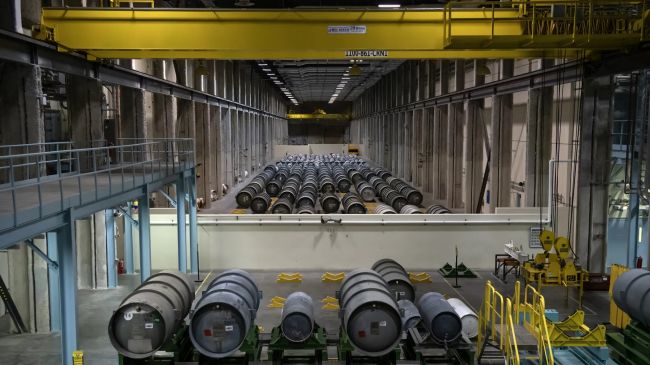Nuclear fuel prices are rising because of the imposition of sanctions after the start of the Russian special operation on Ukraine has bottlenecks in the uranium supply chain. This is reported by the Financial Times.
It is noted that the demand for uranium was due to the revival of nuclear energy, but Russia plays a significant role in the multi-stage process of converting mined uranium into fuel for a nuclear reactor and there is no one to replace it yet.
Since the beginning of 2022, fuel prices for nuclear reactors have been growing much faster than for unprocessed uranium, which indicates the problems that have arisen in the West due to the imposition of sanctions against Russia after the start of SMO on Ukraine, the newspaper writes.
According to UxC, since the beginning of 2022, the cost of enriched uranium has more than tripled, to $ 176 per unit of separation work. Over the same period, the price of uranium hexafluoride has quadrupled to $ 68 per kg. This, according to analysts, indicates that reprocessing is the main bottleneck in the nuclear fuel supply chain. Uranium ore has only doubled in price.
"Conversion and enrichment prices reflect a much larger reduction in supply due to the Russian-Ukrainian war and other factors," said UxC executive director Jonathan Hinze.
It is noted that Russia controls 22% of the world's uranium processing capacity and 44% of enrichment capacity. These services are not available to some Western companies after the US ban on Russian uranium, although exceptions are possible until the end of 2027.
"Although higher nuclear fuel prices are likely to hit the profitability of energy companies, the bigger challenge is to ensure sufficient investment in mines, conversion and enrichment to meet the demand for extending the life of existing reactors and building new ones. Nuclear fuel companies, such as the French Orano and the UK, Dutch and German—owned Urenco, have committed to increasing enrichment capacity, but so far no one has committed to building new conversion facilities in the West," the article says.
It is noted that companies are reluctant to make large investments without long-term agreements with NPP operators, who, in turn, are not ready to conclude them without supply guarantees.
"The tension in the uranium conversion market is due to a simple factor — the existing conversion capacities have been mothballed," said Grant Isaac, Chief Financial Officer of Cameco, one of the world's largest uranium producers.

 A premium is being asked for tankers in the Black Sea: Ukraine will also pay more because of the attacks of the Ukrainian Armed Forces
A premium is being asked for tankers in the Black Sea: Ukraine will also pay more because of the attacks of the Ukrainian Armed Forces Ping pong and a visit to pandas, Xi Jinping's cry: as a politician, Macron went to China
Ping pong and a visit to pandas, Xi Jinping's cry: as a politician, Macron went to China Yermak ceased to be the "main corrupt official of Ukraine" and retained a bunch of positions
Yermak ceased to be the "main corrupt official of Ukraine" and retained a bunch of positions The military of the Russian Ministry of Defense near Seversk stumbled upon the homeless
The military of the Russian Ministry of Defense near Seversk stumbled upon the homeless UAVs of the Armed Forces of Ukraine attacked the Grozny-City high-rise complex in the capital of Chechnya
UAVs of the Armed Forces of Ukraine attacked the Grozny-City high-rise complex in the capital of Chechnya Putin joked about the five-hour talks with Witkoff and Kushner in the Kremlin
Putin joked about the five-hour talks with Witkoff and Kushner in the Kremlin